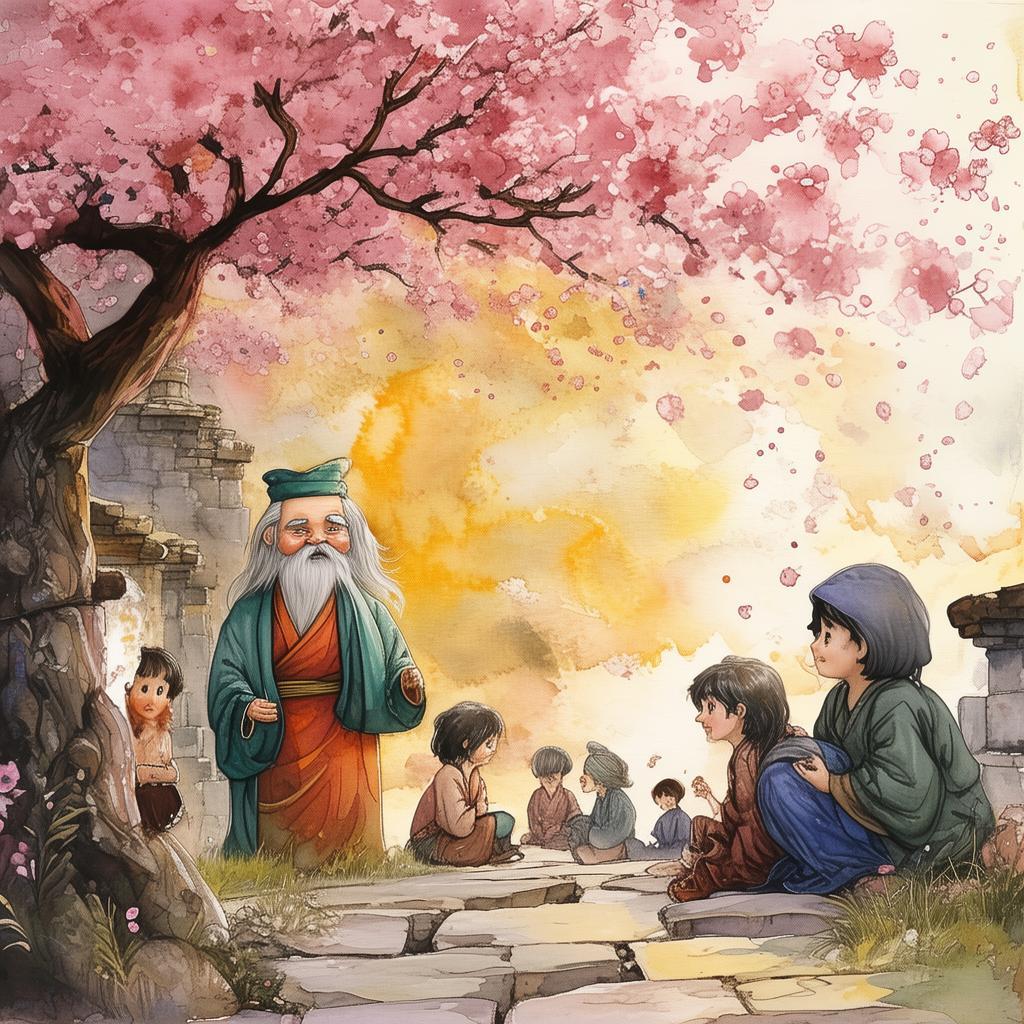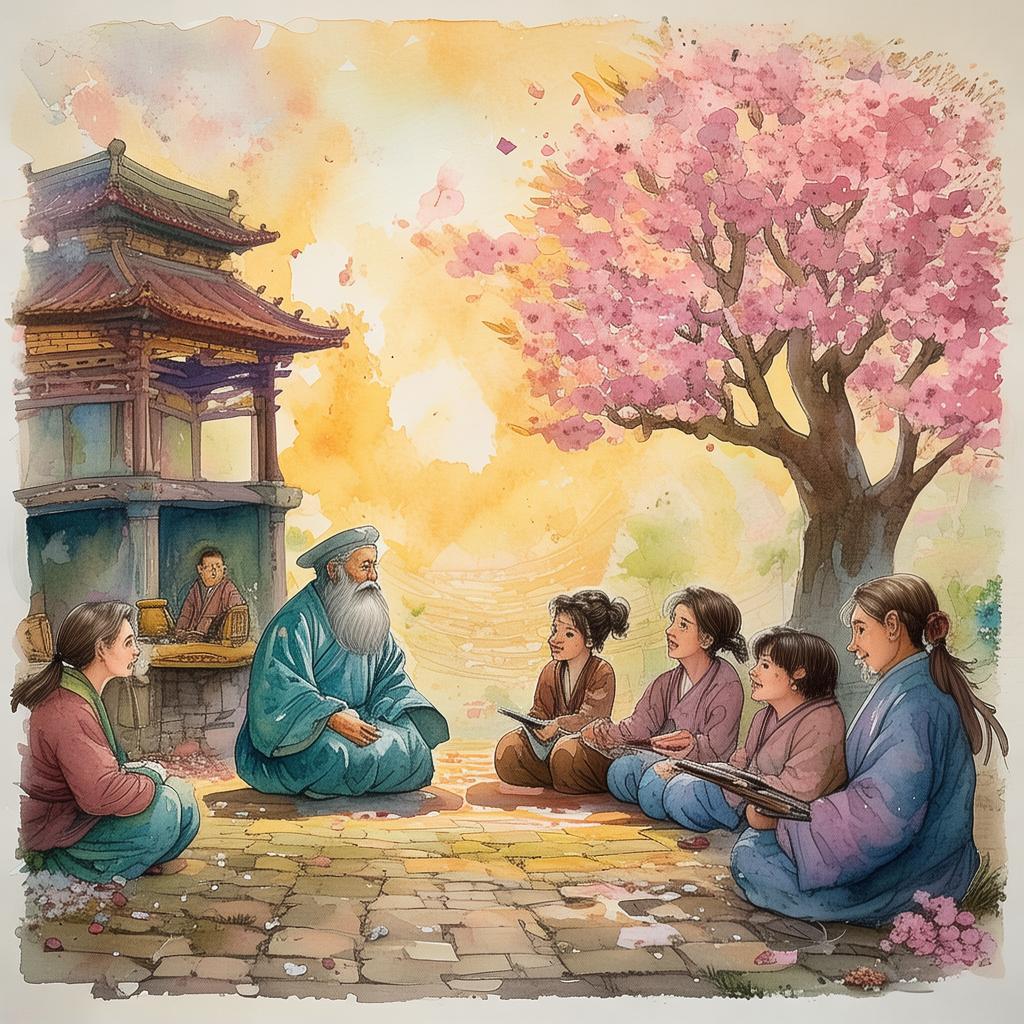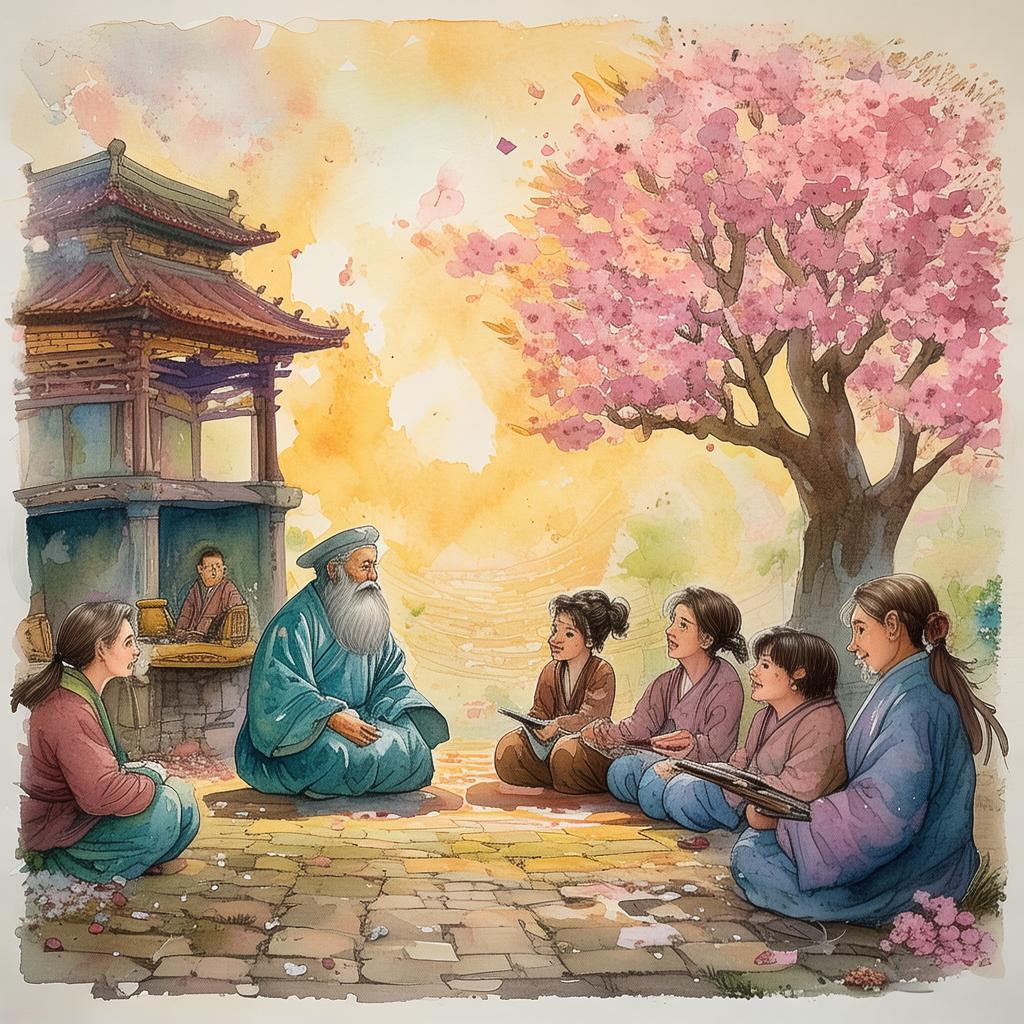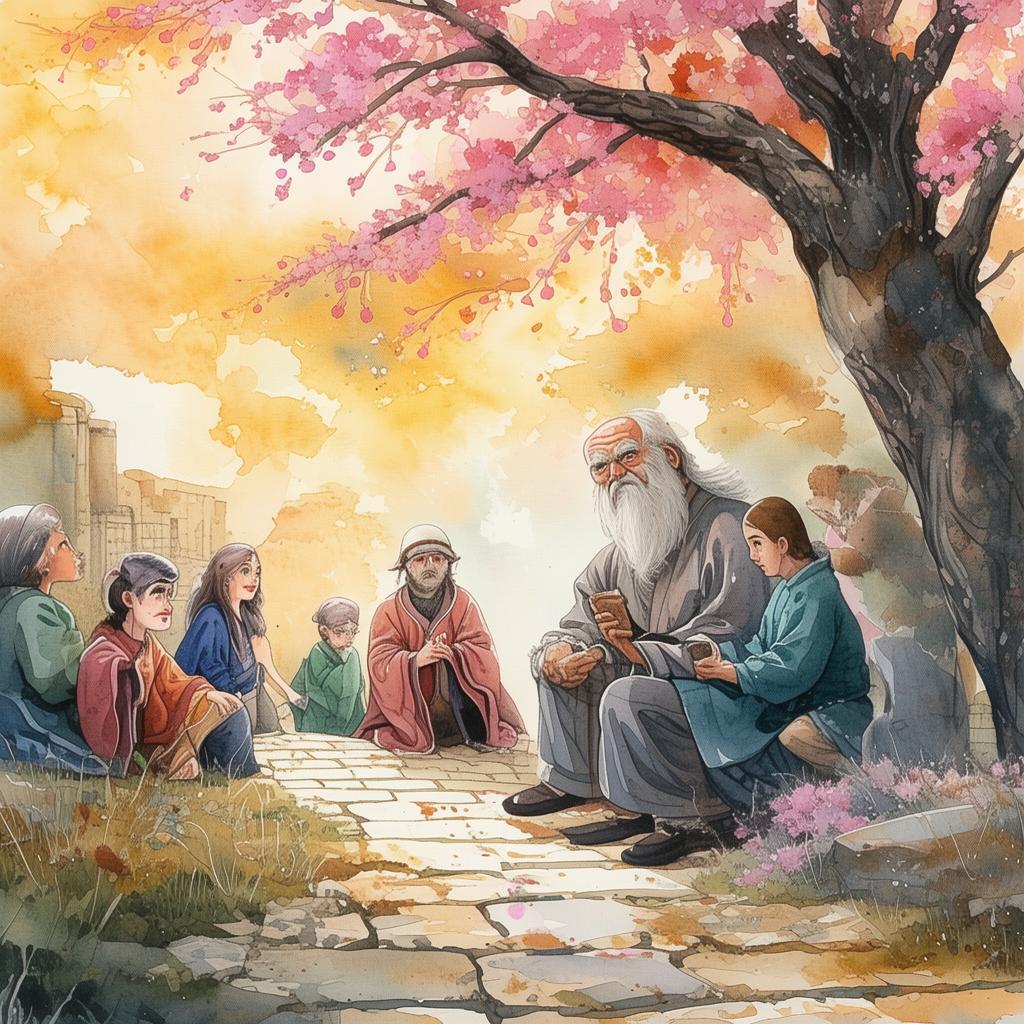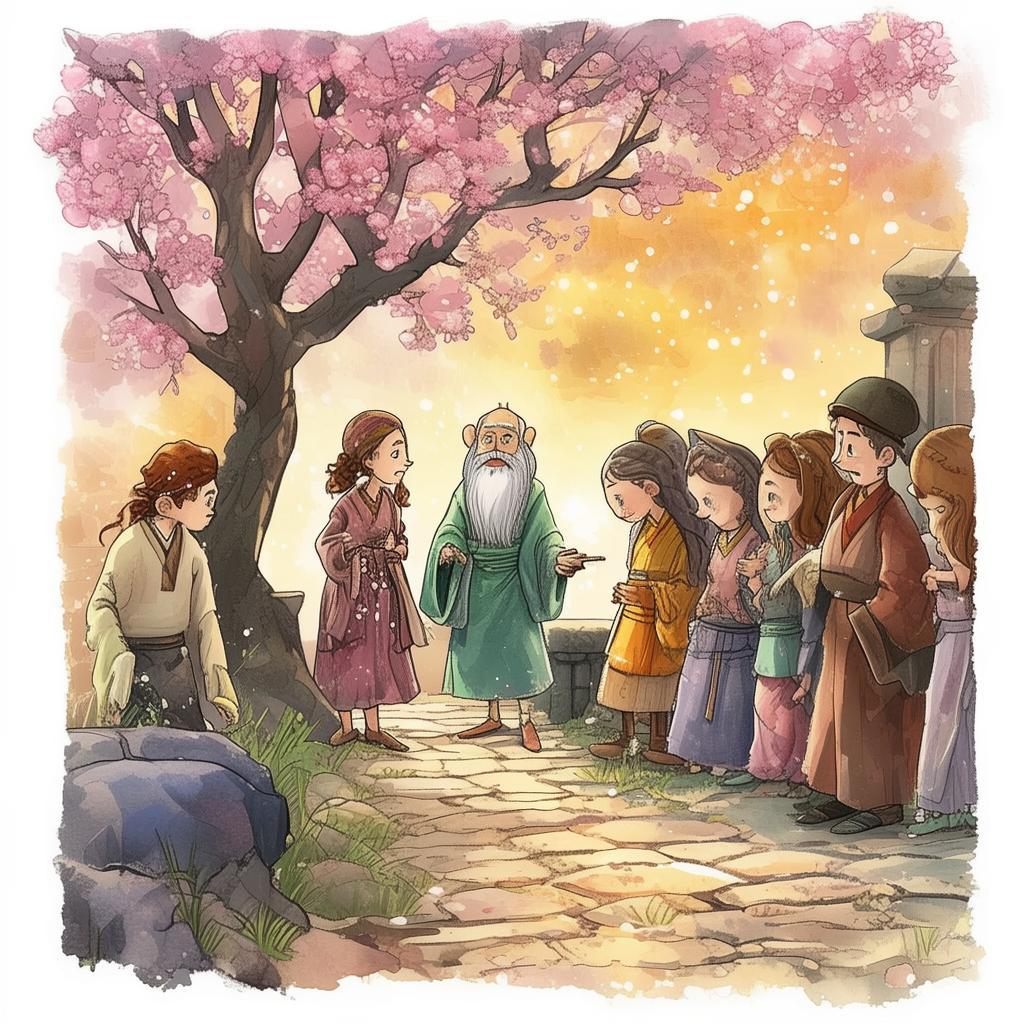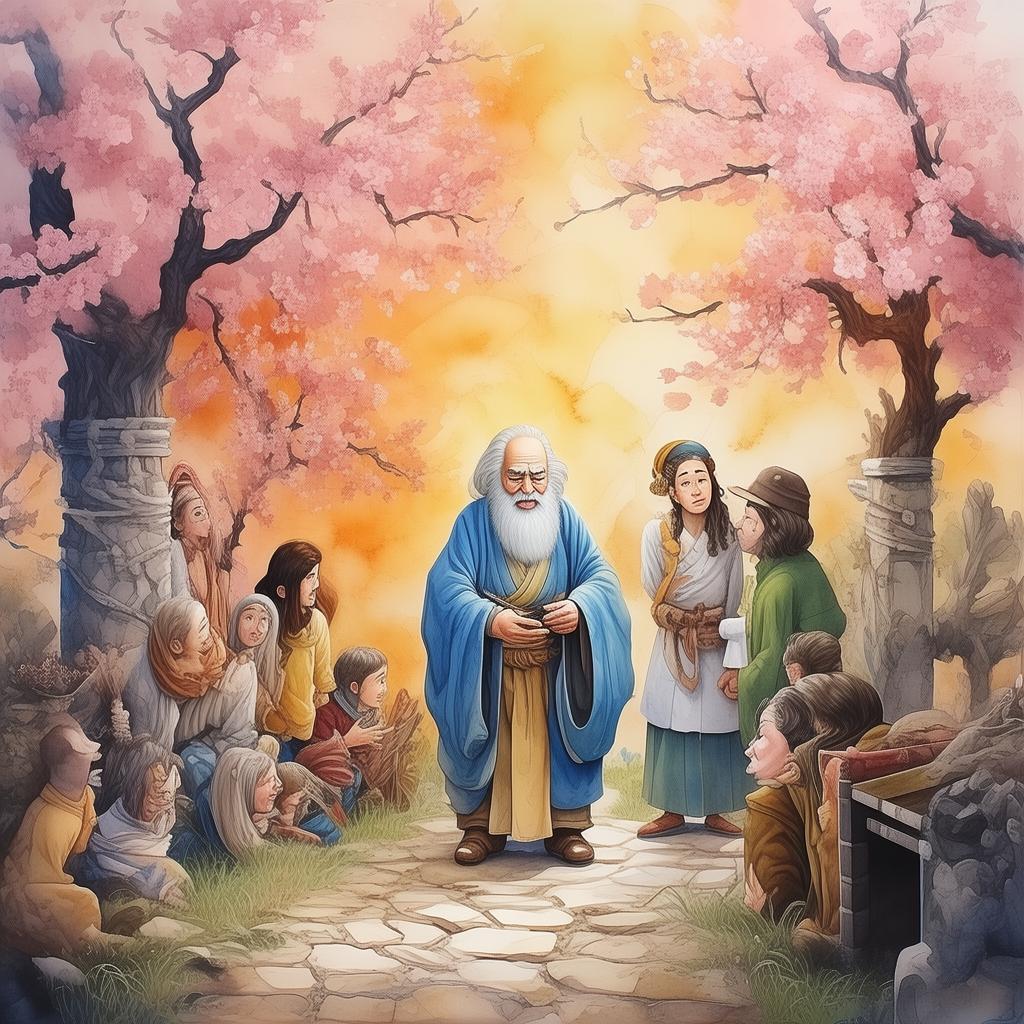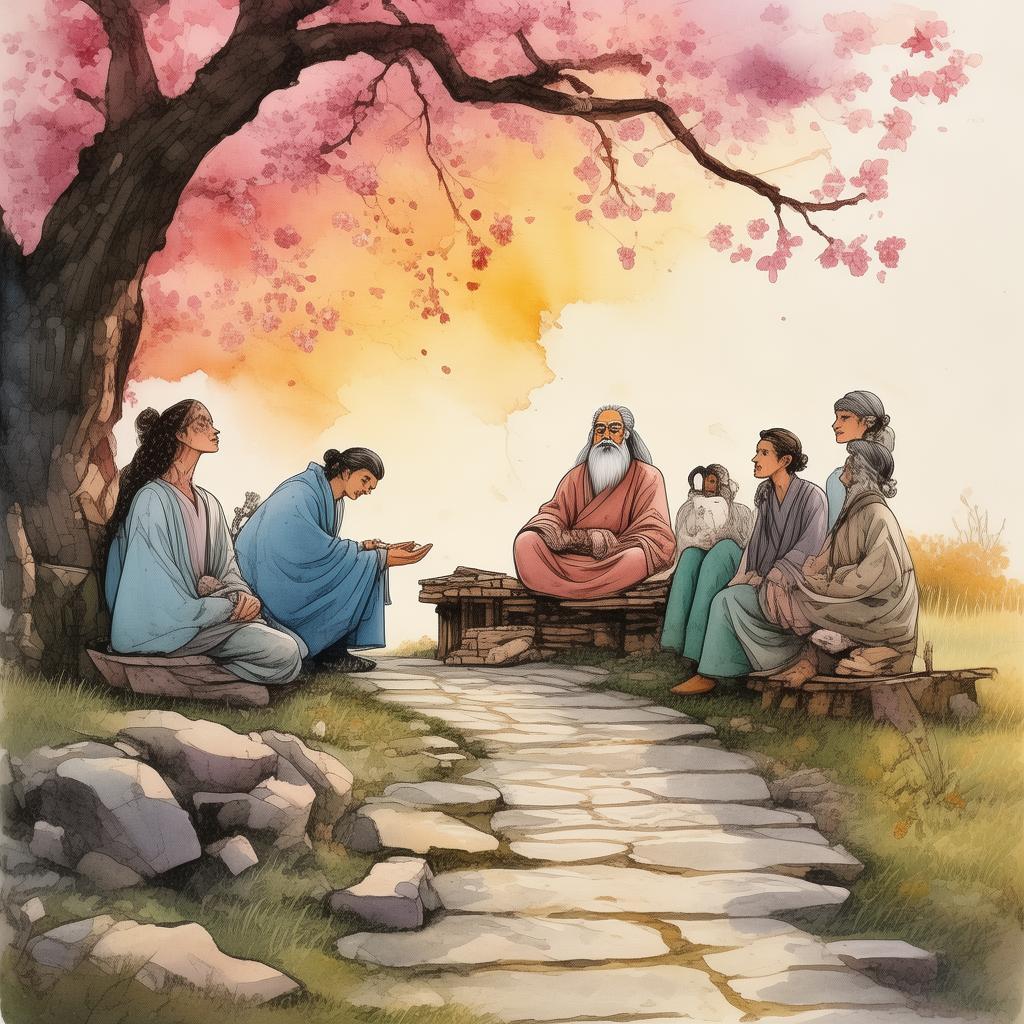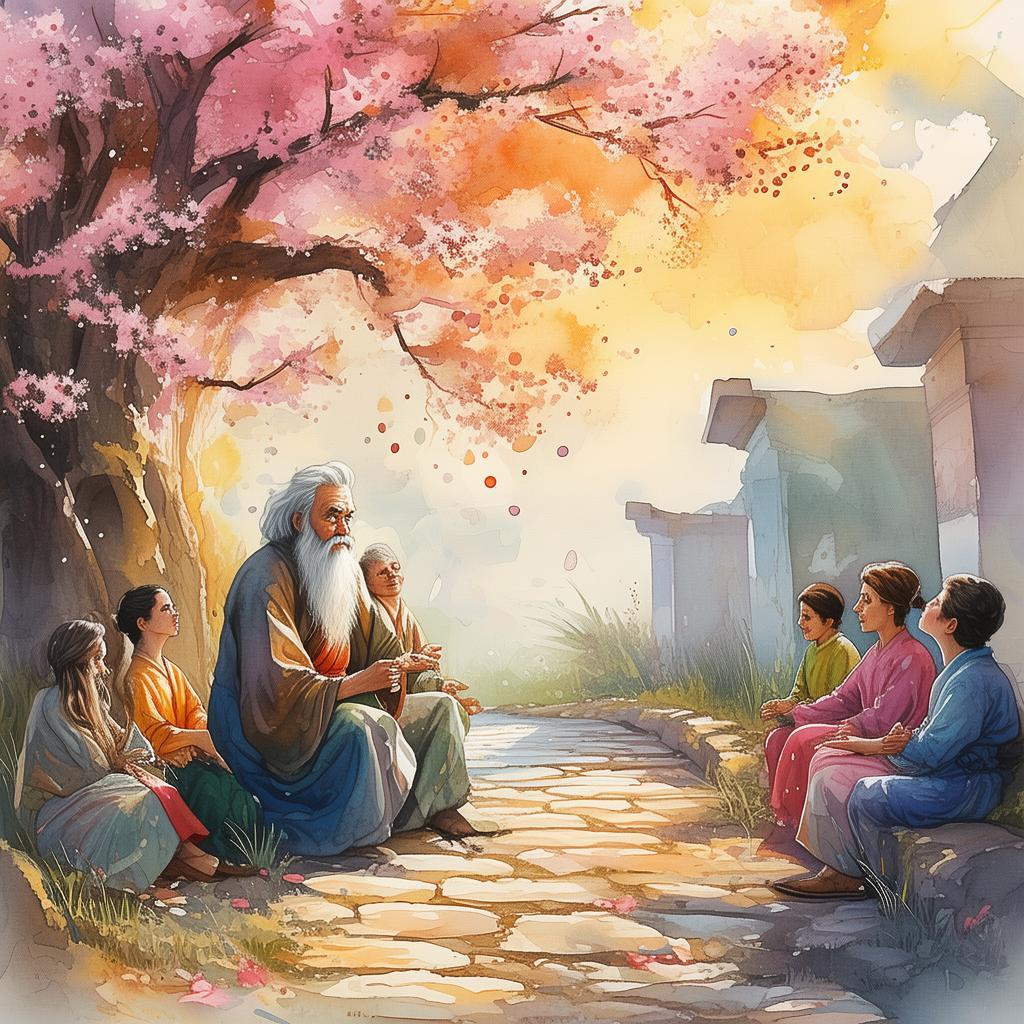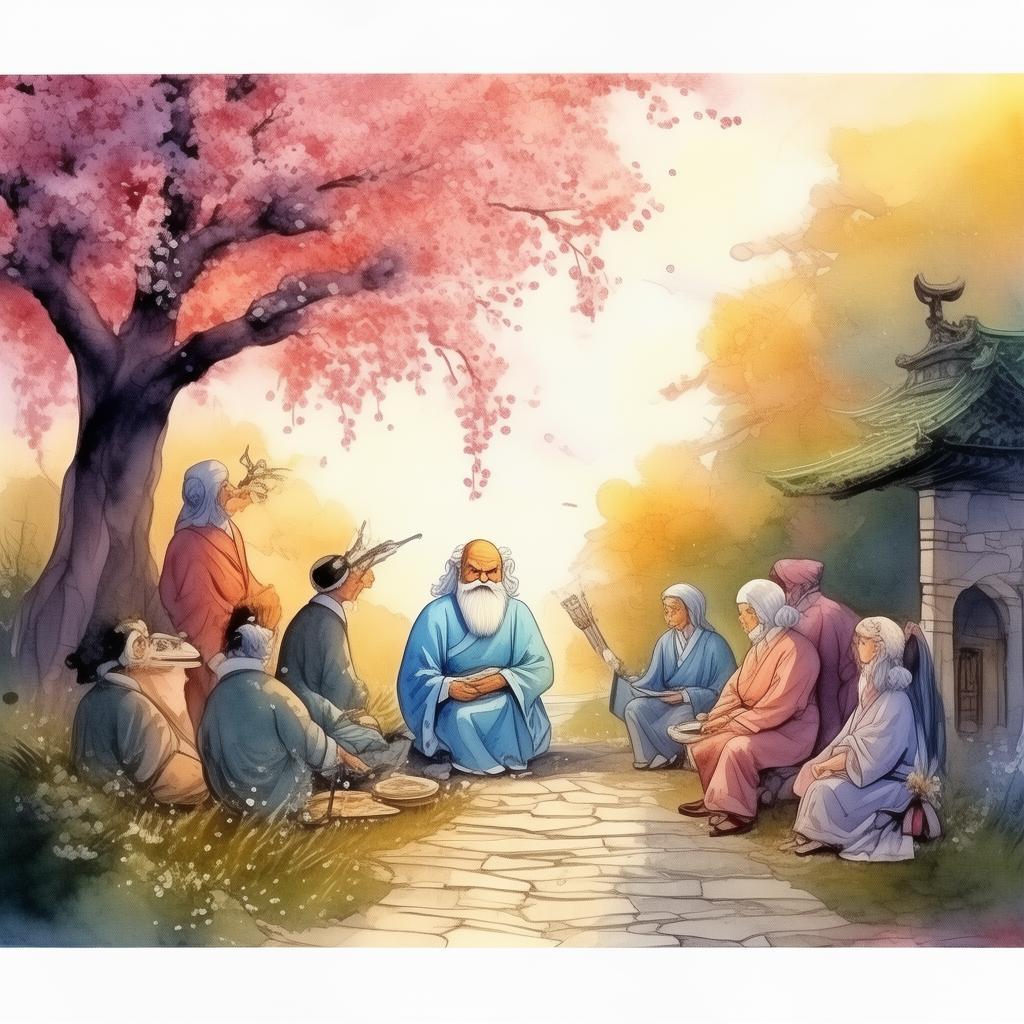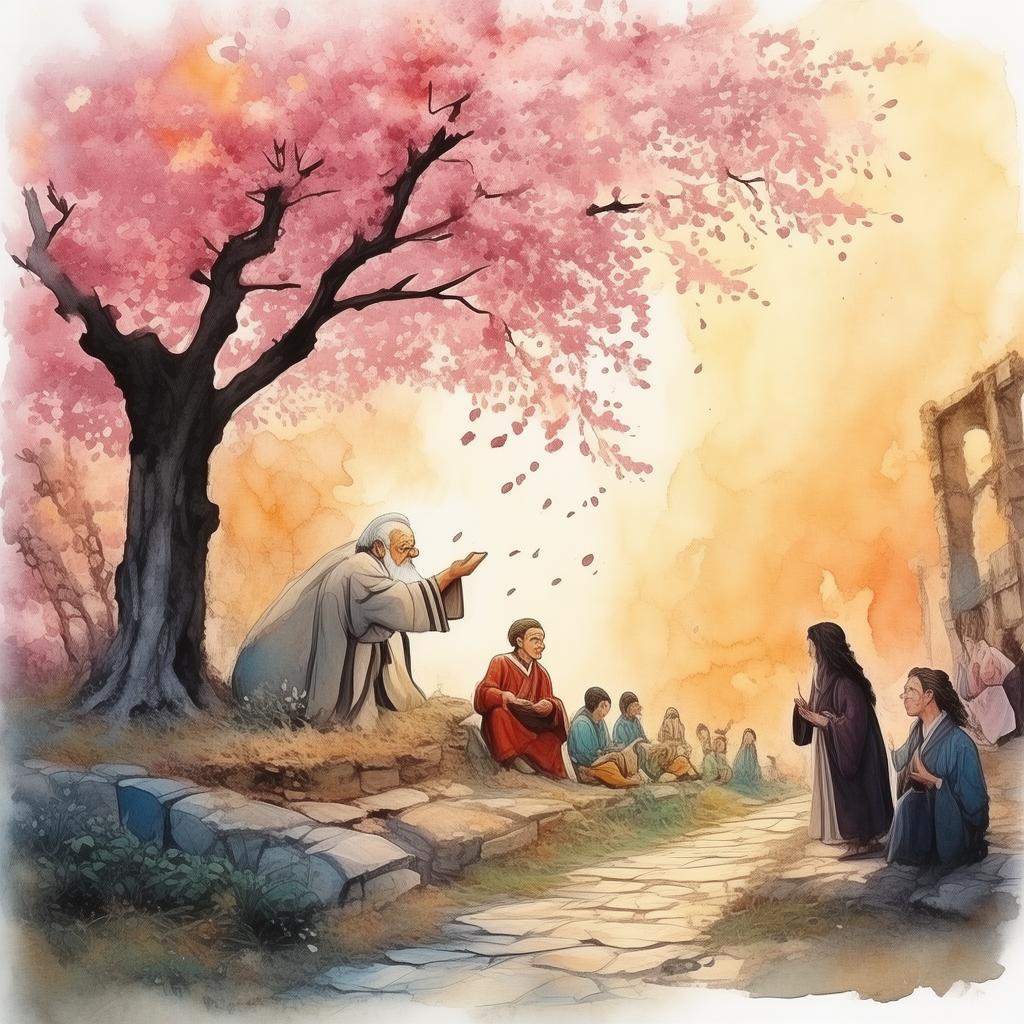Philosophical Quest: The Dream of the Ancient Sage
In the tranquil town of Liji, nestled between rolling hills and whispering rivers, there lived a young man named Ming. Ming was not your average teenager; he was a dreamer, a philosopher in the making, with a heart brimming with questions about the world and his place in it. One fateful night, Ming was awakened by a vision so vivid and compelling that it felt like a fragment of another reality. In his dream, he saw an ancient sage, draped in robes of deep indigo, standing at the edge of a cliff overlooking a sea of stars. The sage spoke in riddles, his voice echoing through the vastness of the night sky.
"Seek the truth in the dreams of the ancients," the sage's voice boomed, and then Ming was jolted back to wakefulness, the dream's image seared into his memory. From that moment on, Ming's nights were haunted by the dream, and his days were consumed by the pursuit of its meaning.
The first clue he sought was in the town's ancient library, a repository of wisdom and knowledge that had stood for centuries. Ming spent hours poring over dusty tomes, searching for any mention of the sage or the dreams he spoke of. It was during one of these sessions that he stumbled upon a forgotten manuscript, its pages yellowed by time.
The manuscript spoke of an ancient ritual, a ceremony where the dreams of the wise were recorded and preserved. It was said that those who could interpret these dreams would unlock the secrets of the universe. Ming was determined to uncover the ritual, but it was not an easy task. The ritual had been lost to time, and the clues were scattered like breadcrumbs in the sands of history.
Determined to follow the trail, Ming set off on a journey that took him to far-off lands, from the bustling markets of Chang'an to the serene monasteries of the Himalayas. Along the way, he encountered mentors, guides, and adversaries, each offering their own interpretations of the dream and the sage's cryptic message.
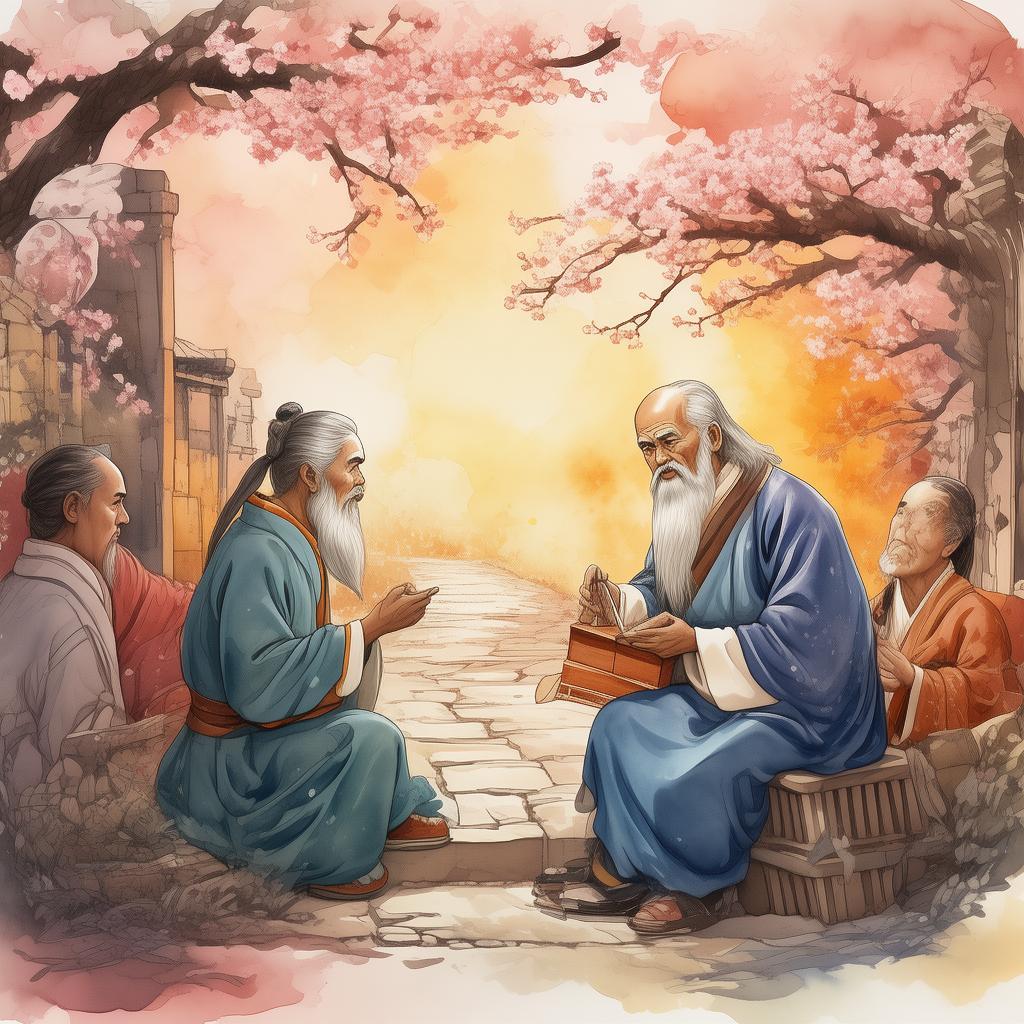
One such mentor was an old monk named Zhen, who had dedicated his life to understanding dreams. Zhen told Ming that the sage's dream was not a simple vision but a reflection of Ming's own innermost desires and fears. "The dream is a mirror," Zhen said, "and it reflects the journey of your soul."
As Ming continued his quest, he began to realize that the dream was not just a guidepost, but a challenge to look inward and confront his own fears. He encountered moments of doubt and despair, questioning whether he was on the right path. Yet, each setback only fueled his determination, as he realized that the true quest was not to find the sage or the ritual, but to find himself.
One evening, as the sun dipped below the horizon, casting a golden glow over the mountains, Ming found himself at the edge of a cliff, much like the one in his dream. He closed his eyes and allowed himself to be carried away by the wind, feeling the ancient sage's presence once more.
"Seek the truth within," the sage's voice echoed in his mind. Ming opened his eyes and saw that the cliff's edge was no longer there; instead, he was standing at the center of a cosmic map, the stars and constellations swirling around him.
Ming realized that the dream had not been a vision of the past, but a glimpse into the future, a vision of his own potential. The sage had not been a figure from history, but a manifestation of Ming's own wisdom, waiting to be discovered within himself.
With newfound clarity, Ming returned to Liji, not as a seeker of ancient wisdom, but as a carrier of it. He shared his experiences and the lessons he had learned with the townsfolk, and soon, the library became a hub of philosophical discourse and self-discovery.
The story of Ming's quest spread far and wide, inspiring others to look beyond the surface of their dreams and into the depths of their souls. And so, the dream of the ancient sage became a living legend, a testament to the power of self-reflection and the endless journey of the human spirit.
In the end, Ming learned that the true meaning of the dream was not in the sage or the ritual, but in the journey itself. It was a journey of self-discovery, a quest to uncover the wisdom that lay within each of us, waiting to be awakened.
✨ Original Statement ✨
All articles published on this website (including but not limited to text, images, videos, and other content) are original or authorized for reposting and are protected by relevant laws. Without the explicit written permission of this website, no individual or organization may copy, modify, repost, or use the content for commercial purposes.
If you need to quote or cooperate, please contact this site for authorization. We reserve the right to pursue legal responsibility for any unauthorized use.
Hereby declared.
